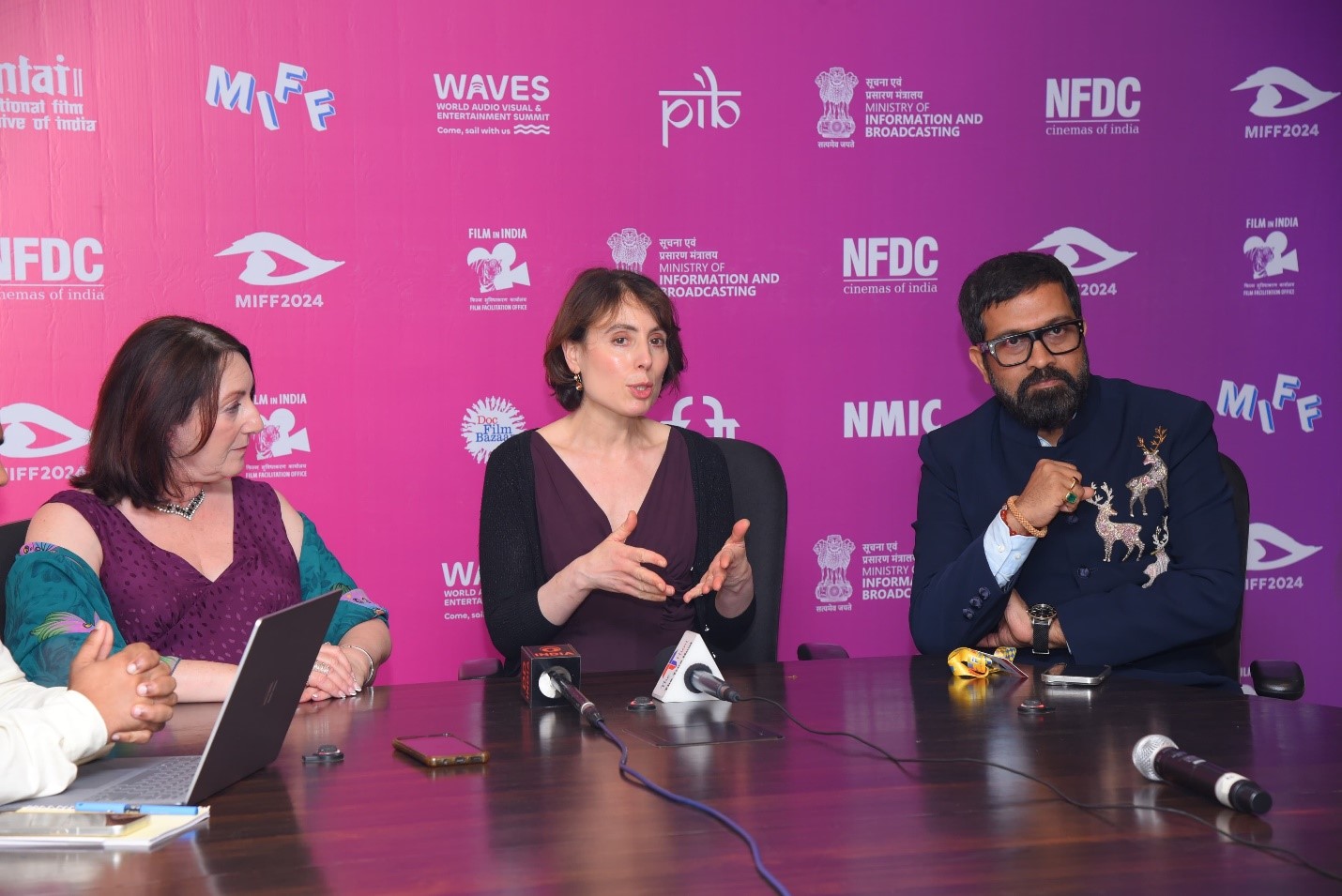Mumbai: At the 18th Mumbai International Film Festival (MIFF), renowned filmmaker Daniela Volker, Director of the documentary ‘The Commandant’s Shadow,’ highlighted the immense potential for international co-productions in India. Speaking at a press conference, Volker emphasized, “Being a vast country, there is so much content in India. India is bursting with fascinating tales and I would love to see Indian stories becoming global and reach wider audiences.”
‘The Commandant’s Shadow,’ screened today as the official Mid-Fest Film, presents a poignant narrative following Hans Jürgen Höss, the 87-year-old son of Rudolf Höss, as he confronts his father’s harrowing legacy for the first time. Rudolf Höss, the Camp Commandant of Auschwitz, was responsible for the murder of over a million Jews. The film juxtaposes Hans Jürgen Höss’s idyllic childhood at Auschwitz with the harrowing experiences of Jewish prisoner Anita Lasker-Wallfisch. Together with their children, Kai Höss and Maya Lasker-Wallfisch, the four protagonists delve into their contrasting hereditary burdens. Executive Producer Sajan Raj Kurup and Co-Executive Producer Wendy Robbins also attended the press conference.
Volker elaborated on the unique content foundation for the film, explaining, “The base for the film was the manuscript written by Rudolf Höss just seven or eight weeks before being sent to death. This manuscript has never before been seen or filmed. The film tells you exactly what happened, in Höss’s own words. It sets a narrative of how Auschwitz was imagined and built, juxtaposed against Rudolf Höss’s letter to his nine-year-old son where glimpses of him as a good and loving father are seen.”
Discussing the financial aspects of film production, Sajan Raj Kurup stressed the importance of conviction. “There is no substitute for conviction. Cinema is a business. Every piece of content is a business. Pitch is as important as the story. Filmmaking should have purpose and not ego. There is a very thin line between the two. Filmmaking cannot change the world; you have to be a politician to do that. But what you can do is tell stories honestly. Ego should not become an agenda. The primary responsibility of a filmmaker is quality storytelling.”
Kurup also pointed to the evolving landscape of documentary filmmaking in India, noting, “Honors like Oscars have started coming in and a lot of entertaining content is being created, breaking the preconceived notions of what documentaries used to be. There is a new business model around how documentaries are built nowadays. The format is more accepted now and documentaries are becoming a part of the streaming universe.” He also hinted at numerous upcoming international collaboration projects.
Wendy Robbins underscored the importance of timing in securing funding for films. “Initially, we were spending money on Daniela’s credit card and shooting sequences using blackout sheets in Daniela’s house. However, the Oscar-winning film ‘Zone of Interest,’ which is the fictional story of the same family, put a spotlight on our film. Ongoing world events also made this film more relevant and that’s how Warner Brothers finally ended up buying it.” Robbins echoed Kurup’s sentiments, reiterating that the integrity of the story and its packaging are crucial to a film’s success.
Volker praised MIFF’s Doc Bazaar initiative, which facilitates collaboration between creators and producers. “Having such arenas for creators and producers to meet and collaborate is a great thing,” she remarked.





